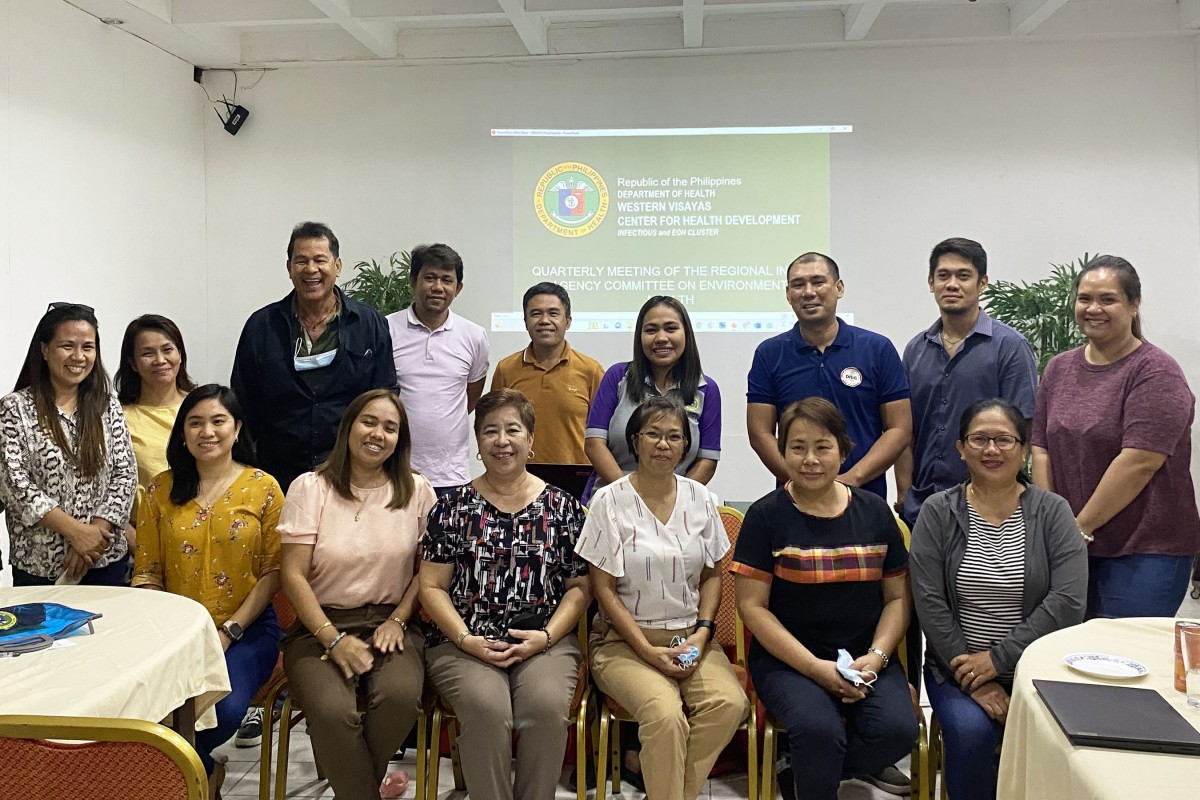LOILO CITY (PIA) -- The Department of Health- Center for Health Development (DOH-CHD) 6 recently led the Regional Interagency Committee on Environmental Health (RIACEH) meeting to discuss the environmental health safety status in the region.
The gathering particularly aimed at updating the body on the status of Food and Water-Borne Diseases (FWBDs) in Western Visayas.
Some infectious FWBDs in the region, which are currently under surveillance, that include the Acute Bloody Diarrhea (ABD), cholera, rotavirus, Hepatitis A and typhoid were discussed during the meeting.

As to the current record of mortalities, there are six deaths accounted in total relevant to FWBDs, with one for ABD, four for cholera, and one for typhoid.
With the existence of FWBDs, the health department reiterated to the committee members its Department Memorandum 2020-0027 containing the guidelines onthe implementation of the FWBD Prevention and Control Program.
The said memorandum stipulates the corresponding tasks of each member agency of RIACEH in mitigating the increasing incidence of FWBD during rainy seasons and in areas in the region with poor sanitation and hygienic practices.
Meanwhile, DOH-CHD 6 Medical Technologist Dennar Jun A. Romey discussed the salient features of the Philippine National Standards for Drinking Water (PNSDW).
He noted the 10 mandatory drinking-water quality parameters which must be considered in conducting sampling tests which include the presence of Thermotolerant Coliform or E-coli, arsenic, cadmium, lead, nitrate, and color, turbidity, pH level, total dissolved solids, and disinfectant residuals.
Romey said that these parameters will allow the local stakeholders to determine the problems and implement necessary water treatment for health safety in their respective areas.
In addition, he reported some of the responses it has carried out in Caluya

Island in Antique among its several barangays affected by the oil spill in early March this year.
Some of the initiatives that the DOH has done were the conduct of assessments, continuous environmental surveillance, water sampling to water sources, and issuance of an advisory containing some amendments on the working policy in the affected zones, serving as the baseline of the local government unit in extending the working hours of the clean-up crew in view of hastening environmental recovery.
Likewise, in his presentation, Engr. Joemer F. Fayo of the DOH-CHD 6 emphasized both the environmental and occupational health mandate in the institutionalization of the RIACEH.
Fayo said that it is imperative to strengthen the committee in order to protect the public’s health better from the growing health problems related to environmental degradation.
He added that among the viable steps to undertake is to formulate policies, develop environmental health programs, and conduct information dissemination campaigns pertaining to environmental protection, among others. (AAL/AGP/PIA 6)



